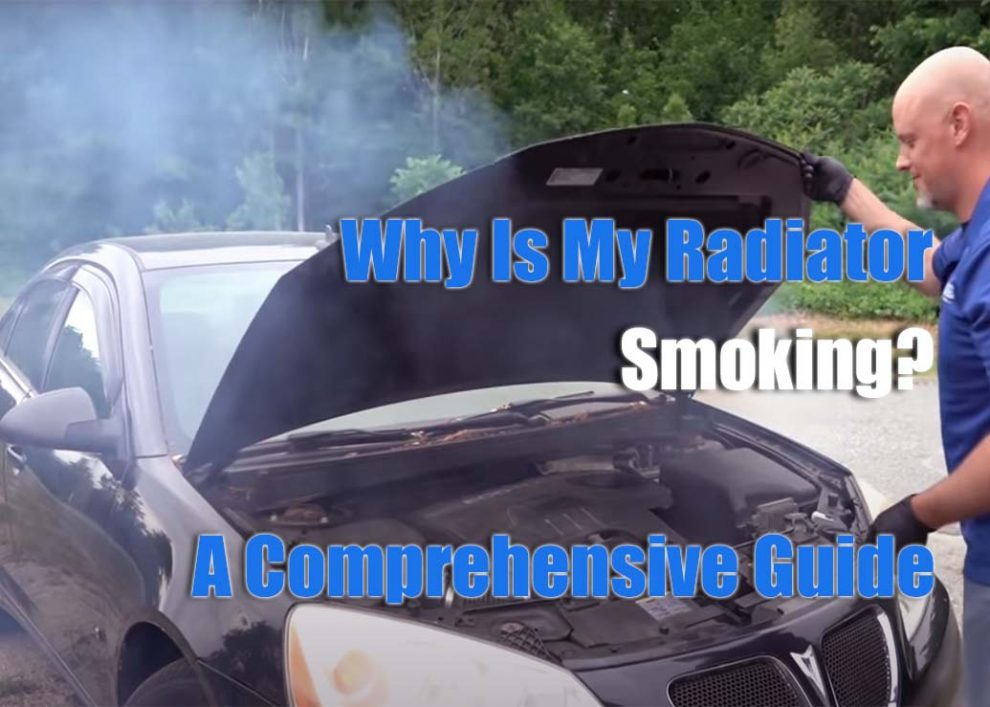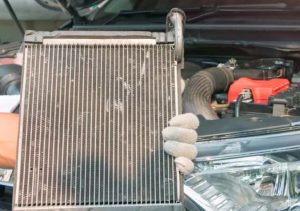Vehicle components, each vital in their right, contribute to a car’s overall performance and safety. The radiator, often overlooked, plays a critical role. It ensures that the engine remains within a safe temperature range, optimizing functionality. But when smoke starts billowing from this essential component, alarm bells should ring. Such a phenomenon makes many ask, “Why is my radiator smoking?” Smoke, a clear sign of dysfunction, indicates underlying issues that need immediate attention. Timely intervention can prevent complications, ensuring the vehicle’s longevity and safety. Given the significance of this topic, it’s vital for car owners to understand the reasons, potential impacts, and necessary preventative measures related to radiator smoke.
Role of Radiators in Cars
Every engine, while operational, emits a significant amount of heat. If not managed, this heat can damage the engine, resulting in inefficient performance and potential hazards. Here’s where the radiator steps in. Acting as the engine’s cooling agent, it circulates a special fluid, known as coolant, absorbing and dissipating the excess heat. As the hot coolant enters the radiator, it gets cooled down by the external airflow, facilitated by fans, before it heads back to the engine. Thus, the radiator acts as a buffer, preventing the engine from overheating. Any malfunction, especially one that causes smoke, compromises this buffer, putting the engine at severe risk.
Top Reasons for a Smoking Radiator
Understanding the reasons behind a smoking radiator is crucial for timely and effective intervention. Several factors can be responsible:
-
 Blockage: Over time, debris, rust, or sediment might accumulate, obstructing the coolant’s flow. This blockage can cause the radiator to overheat, leading to smoke.
Blockage: Over time, debris, rust, or sediment might accumulate, obstructing the coolant’s flow. This blockage can cause the radiator to overheat, leading to smoke. -
Subpar Coolant: The coolant’s quality is vital. If it’s not up to standard or if it’s the wrong type, it might not function optimally, causing the radiator to emit smoke.
-
Leaks: Any leak within the radiator system can lead to coolant escaping. When this coolant comes in contact with hot engine parts, it evaporates, causing smoke.
-
Radiator Fan Issues: The fan is responsible for ensuring adequate airflow to cool the coolant. A malfunctioning fan can cause insufficient cooling, leading to smoke.
-
Defective Thermostat: The thermostat regulates the engine’s temperature. If it’s broken, the engine might overheat, causing the radiator to smoke.
Regular check-ups can help identify and rectify these issues before they escalate.
Potential Consequences of Ignoring the Problem
A smoking radiator is a symptom of underlying issues that, if left unaddressed, can have severe consequences. Overheating is the most immediate threat, which can lead to engine components warping. In worst-case scenarios, the heat can be so extreme that it causes engine fires. Beyond the damage to the engine, there’s a significant safety concern. An overheating engine can lead to sudden breakdowns, endangering the vehicle’s occupants and other road users. Moreover, consistent overheating strains the engine, leading to reduced efficiency and an increased consumption of fuel. Such outcomes not only dent the owner’s pocket due to increased fuel costs but also because of potential expensive repairs or replacements.
Maintaining a Healthy Radiator and Performance Tips
Proactive and regular maintenance can ensure that the radiator functions optimally. Periodic checks for potential blockages, assessing the coolant quality, and looking for leaks are some essential practices every car owner should adopt. Besides, ensuring the radiator fan is in good shape and the thermostat functions correctly can save a lot of trouble. For those keen on boosting their vehicle’s performance, there are several additional upgrades one can consider. For example, enhancing the vehicle’s intake system is a proven method. Speaking of which, we have an informative piece on the Best Cold Air Intake for Toyota Corolla that you might find interesting. Remember, a vehicle’s health is often a reflection of the care it receives. Regular maintenance and timely interventions can ensure longevity and optimal performance.


 Blockage: Over time, debris, rust, or sediment might accumulate, obstructing the coolant’s flow. This blockage can cause the radiator to overheat, leading to smoke.
Blockage: Over time, debris, rust, or sediment might accumulate, obstructing the coolant’s flow. This blockage can cause the radiator to overheat, leading to smoke.
Add Comment